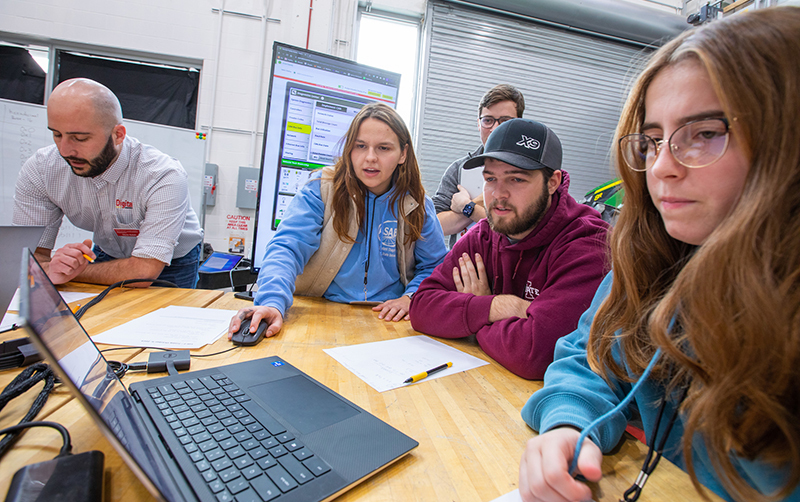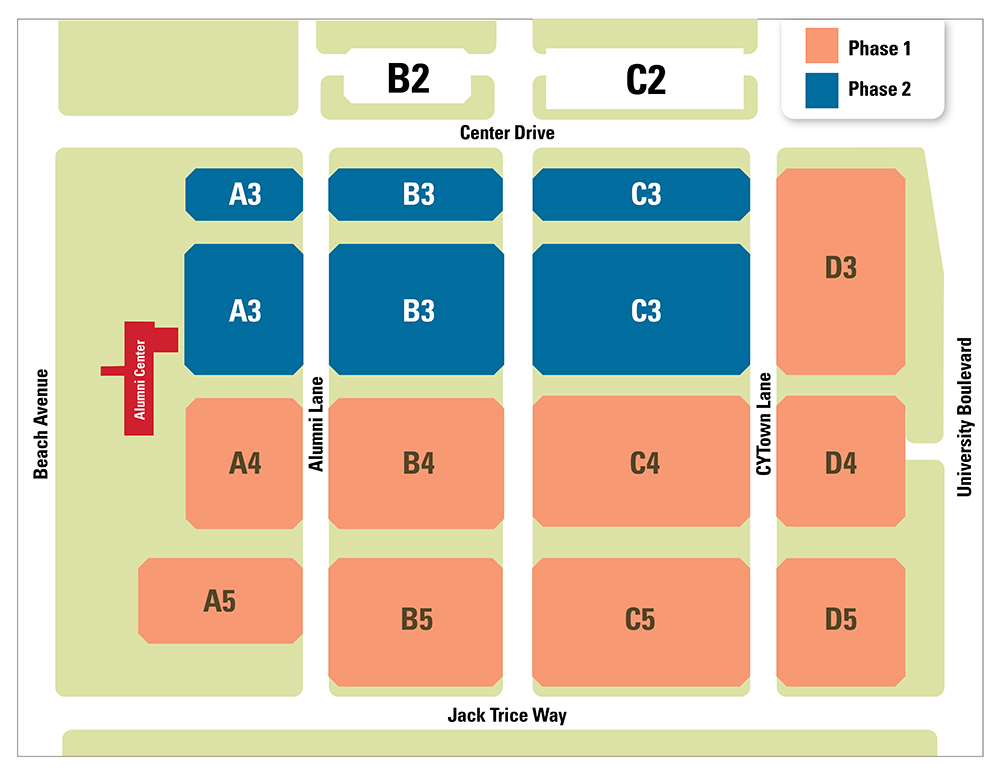
(l-r) Chris Saleh, engineer in the agricultural and biosystems engineering department and bootcamp instructor; Lisa Tordai, senior in software engineering; Tristan Thier, senior in agricultural systems technology; and Lauren Thompson, sophomore in agricultural engineering, ponder their data during the bootcamp session at Sukup Hall on Nov. 3. Photos by Christopher Gannon.
Students interested in the latest in vehicle technology kicked it into high gear this semester by participating in the first-ever vehicle technology bootcamp.
The bootcamp resulted from a collaboration among John Deere, the department of agricultural and biosystems engineering, the ISU Research Park and the Digital Ag Innovation Lab, and is providing undergraduate and graduate students hands-on experience with cutting-edge software and hardware included on a John Deere tractor. It also includes small-group sessions with ag industry veterans and ISU faculty. Two cohorts, each containing about a dozen students, are completing the bootcamp this semester by attending sessions in Elings and Sukup halls on Friday afternoons. Organizers intend for this year's bootcamp to be a pilot that could lead to similar opportunities in the future that involve other industry partners.
On Friday, Nov. 3, 10 students participated in the second of four sessions with the bootcamp's second cohort. The students worked at a table in a high-bay lab in Sukup Hall in the shadow of a towering 8R John Deere tractor. Real-time data from the tractor flashed across a large display screen at the front of the lab, and students observed and analyzed the data using their laptops. By sifting through the complex computer code, the students could see real-time information on everything from the tractor's transmission temperature to its fuel usage.
"This bootcamp will expand the students' knowledge of what's in these vehicles and show them some of the interesting things you can do with this technology, that these vehicles are more than just the machinery," said John Potter, a senior engineering manager at the Digital Ag Innovation Lab. "It also has the potential to help students make connections in the industry and expand the pool of potential new hires when the students graduate."
The collaboration
The tractor used to demonstrate the technology belongs to the Digital Ag Innovation Lab, while John Deere provides a speaker and mentor to work with the students each week. Around 56 students applied for the bootcamp, and 24 students were accepted -- 12 participants in each of the two cohorts. The bootcamp is completely voluntary and does not provide course credit, so the high demand among students demonstrates an intense interest in the latest vehicle technology, Potter said.
Henry Hayes, a sophomore in computer engineering from Arlington, was among the students selected for the second cohort. He and a partner combed through rows of computer code and spreadsheet data generated by the tractor and displayed on their laptop during the session. They were learning how to adjust the tractor's on-board displays from their laptop.
At first, the data was just an incomprehensible "jumble of numbers," Hayes said, but the bootcamp was showing him how to make sense of the complex stream of information.
"I grew up on a farm, and I want to find that place where agriculture and technology overlap," he said.
Lauren Thompson, a sophomore studying agricultural engineering from Wilton, said she's considering pursuing either the power machinery and engineering option in her major or the land and water resources option. She said the bootcamp may have tilted the scales in favor of the power machinery track, though her mind remained open.
"I really appreciated hearing from the speakers from John Deere," Thompson said. "I wanted to learn more and get hands-on experience with a tractor because that could help me decide what I want to study."

